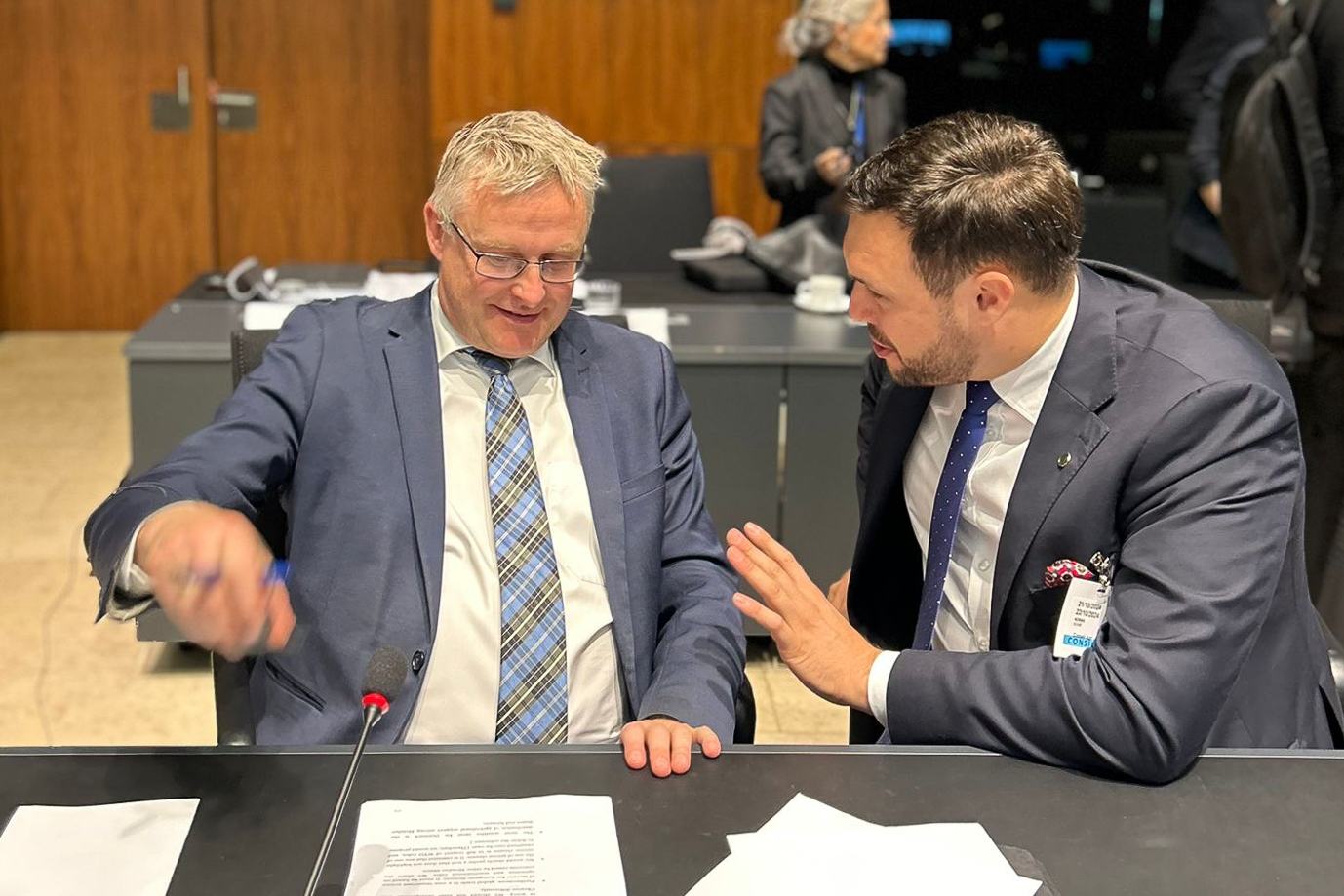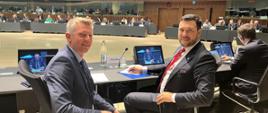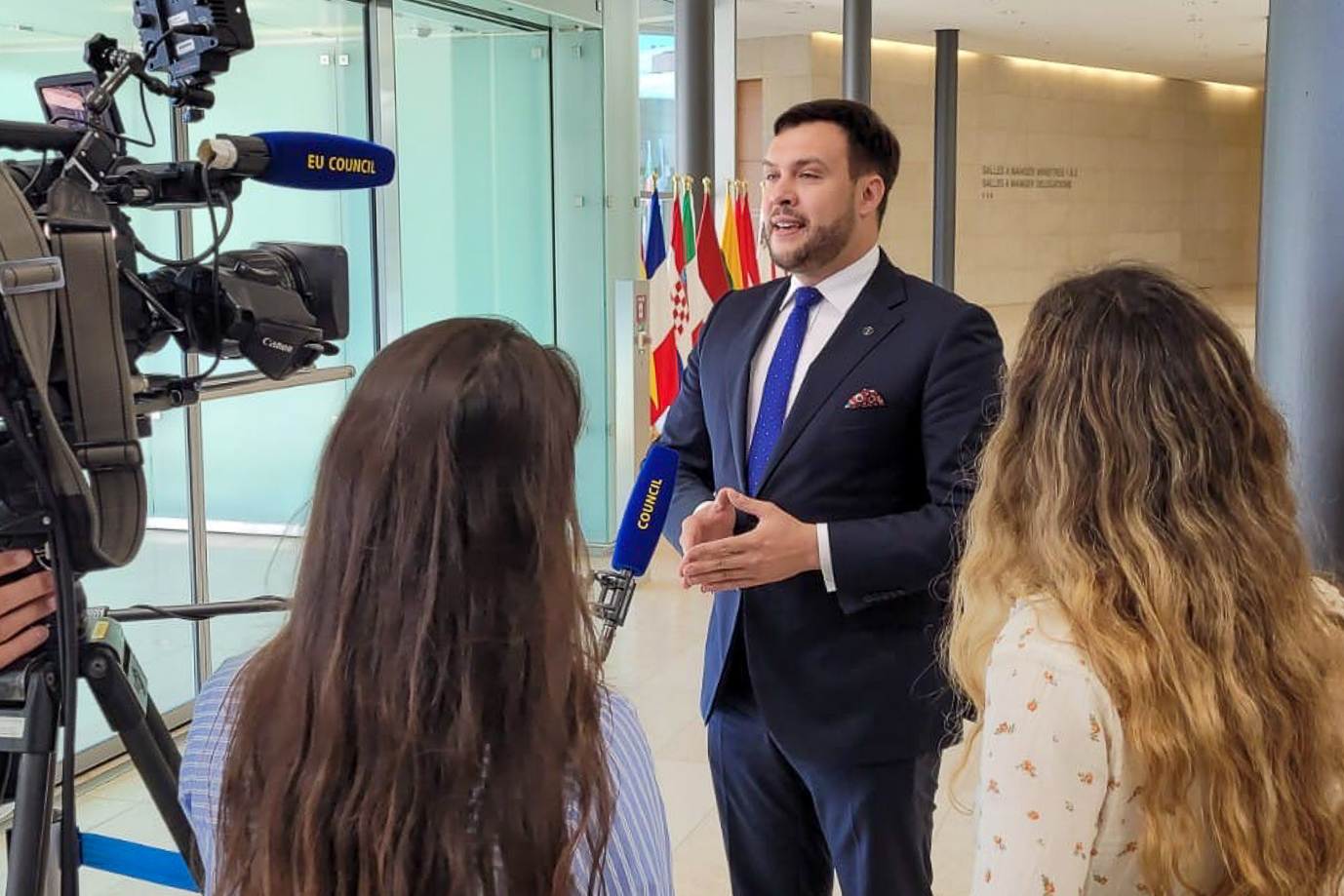AGRIFISH in Luxembourg: important issues for agriculture
23.10.2024
During the EU Agriculture and Fisheries Council (AGRIFISH) meeting held in Luxembourg on 21-22 October 2024, the important issues related to agriculture were discussed. The topics raised during the meeting concerned mainly the conclusions on the Common Agricultural Policy after 2027, the challenges facing the EU food chain, the financing of crisis measures in the European Union and agricultural issues related to trade. On behalf of the Polish delegation, the farmers’ affairs were represented by the Undersecretary of State Adam Nowak.

Common Agricultural Policy after 2027
The Hungarian Presidency presented the draft Council conclusions on the Common Agricultural Policy after 2027 oriented towards farmers. Finally, the conclusions were supported by 26 Member States, including Poland, and due to Romania’s opposition – they were adopted as the Presidency conclusions.
They stress that the future Common Agricultural Policy (CAP) should ensure food security while guaranteeing adequate financial support, incentives for farmers and reasonable prices for consumers.
Position of Poland
During the discussion, the Undersecretary of State Adam Nowak pointed out that the objective of the Common Agricultural Policy was mainly to ensure EU food security.
– In the discussion on the shape of the CAP in the future, the Community enlargement to include other countries should be taken into account, and the European Green Deal in agriculture should be further rationalised and based on good agricultural practices – said Deputy Minister Nowak.
The Undersecretary of State also pointed to the need for the adequate financing of the CAP.
– We are of opinion that it is impossible to discuss the achievement of the CAP objectives without providing the adequate financing. The future CAP must guarantee adequate income to farmers. It is also necessary to ensure the significant empowerment of farmers in the food supply chain – said Deputy Minister Adam Nowak.
The representative of the Polish delegation emphasised that the adoption of a common position of EU Ministers of Agriculture would be a clear signal for farmers, rural residents and consumers.
– I am convinced that the Council’s strong position on the future CAP will contribute to shaping the policy that will allow to meet the objectives and challenges facing the agri-food sector and will ensure the provision of food security and adequate income of farmers.
EU food chain
The Ministers of Agriculture discussed the major challenges currently facing the EU food chain. During the discussion, the Ministers discussed how to meet those challenges and increase the competitiveness of the EU food chain, while ensuring steady deliveries of safe and healthy food for EU citizens.
Position of Poland
The Undersecretary of State Adam Nowak admitted that in the coming years the EU food chain would face many challenges, such as: climate change, growing price risk, high costs of energy, fertilisers and feedstuffs, which would increase pressure on the agri-food sector.
– The major challenge is to ensure adequate income and cost-effectiveness of food production. The level of food production in the EU and food security will be dependent on it – emphasised the deputy head of the Polish Ministry of Agriculture.
The Deputy Minister also pointed out that it was necessary to ensure the proper generational renewal in agriculture and to design further measures in this regard.
– Currently, measures are required for a stable and competitive market that will ensure food security and protect the EU internal market. Unfortunately, the growing requirements for food production in the EU reduce the competitiveness of EU goods when compared to imported goods – said the Undersecretary of State Adam Nowak.
The deputy head of the Polish Ministry of Agriculture added that instruments were needed to protect the internal market and to control compliance with equally high standards as regards production methods of goods imported into the EU.
– Support should be provided to farmers so as to empower them in the food chain.
Financing crisis measures in the European Union – extreme climate phenomena
Portugal expressed the view that, given the occurrence of extreme events such as, e.g., drought and floods, of importance was a sustainable flexibility of using resources, development of a holistic approach to crisis support and provision of credit guarantees from EU funds. It also pointed to the need to share risk by involving the private and public sectors and insurance. Portugal’s view was supported by Bulgaria, Croatia, Cyprus, Estonia, Greece and Italy.
A number of countries, including Poland, welcomed that issue and acceded to the European Commission’s request to prepare a comprehensive strategy for responding to extreme weather events. During the discussion, the need to mitigate and prevent the effects of climate change was talked about, so was the provision of greater flexibility for the Member States in responding to crises. What was indicated, was the importance of prevention and risk management instruments as well as the need to design appropriate tools and easier access to relevant EU funds.
The Undersecretary of State Adam Nowak reminded about the application submitted by Poland for financial aid for farmers affected by the flood.
Poland supported Romania’s information regarding the need to extend the application of the temporary crisis and transition framework in the agricultural sector (TCTF) and to increase the individual limit per agricultural enterprise. Romania requested to extend the application of TCTF in the agricultural sector until at least 30 June 2025 and to increase the individual aid limit per agricultural enterprise from EUR 280 thousand to EUR 560 thousand.
Trade-related agricultural issues
Based on the information provided by the Commission, the Ministers discussed the issue of agricultural trade. The Council was informed about the current trade flows of agri-food products and about the latest negotiations on bilateral free trade agreements.
Position of Poland
The Undersecretary of State Adam Nowak stressed that an important factor in guaranteeing farmers benefits from international trade was the proper consideration of the interests and sensitivity of the agricultural sector in trade negotiations.
– Priority should be given to preferential treatment of EU agricultural production and to maintaining EU food security. Moreover, the concessions in access to the EU agricultural market should not be treated as a means balancing the concessions of trading partners in other sectors – emphasised the Deputy Minister Adam Nowak.
The deputy head of the Polish Ministry of Agriculture stressed that the negotiations should be preceded by an impact assessment.
– In addition, during the negotiations, the principles of transparency, reciprocity and balance of exchange of tariff concessions should be followed, and an important element of agreements being concluded should be a bilateral safeguard clause allowing to take quick and effective measures in the event of excessive import – said the Undersecretary of State Adam Nowak.
Meeting of the Visegrad Group countries, Bulgaria and Romania
In the context of any other business, Poland presented the results of the meeting of the Visegrad Group countries, Bulgaria and Romania held in Poznań on 25-26 September 2024.
The Undersecretary of State Adam Nowak informed that during that meeting the Ministers pointed to the challenges resulting from the catastrophic floods and shared the experiences of two years of implementing the CAP strategic plans. The Deputy Minister pointed out that the Ministers also had discussed the challenges facing the CAP, including those resulting from the EU enlargement and had referred to the use of biomass for energy purposes.
Meetings on the sidelines of the Council meeting
On the sidelines of the AGRIFISH Council, a meeting of Deputy Minister Adam Nowak and Deputy Minister of Hungary Anikó Juhász was held, which concerned the issues related to the partnership with regard to research and innovation for the promotion of sustainable management of natural resources, safety of food systems and implementation of the bioeconomy (BIOEAST Partnership).



